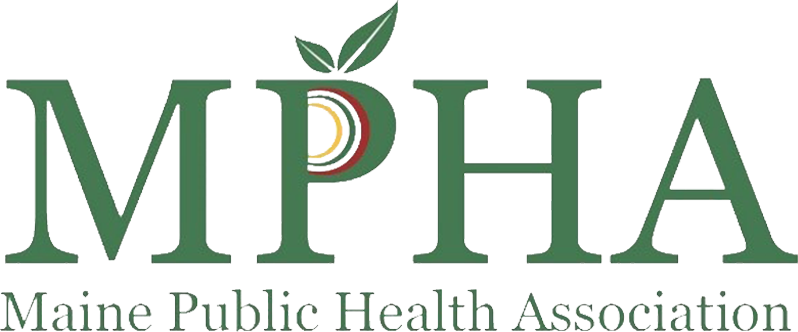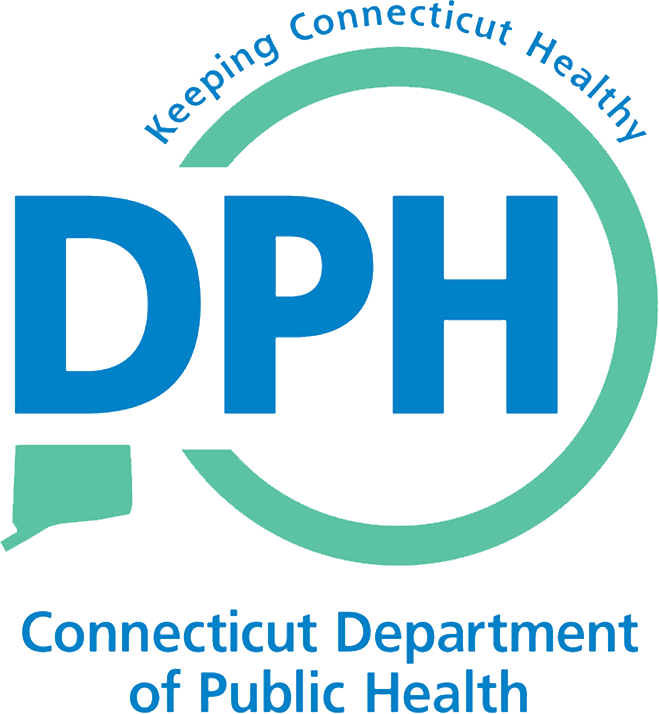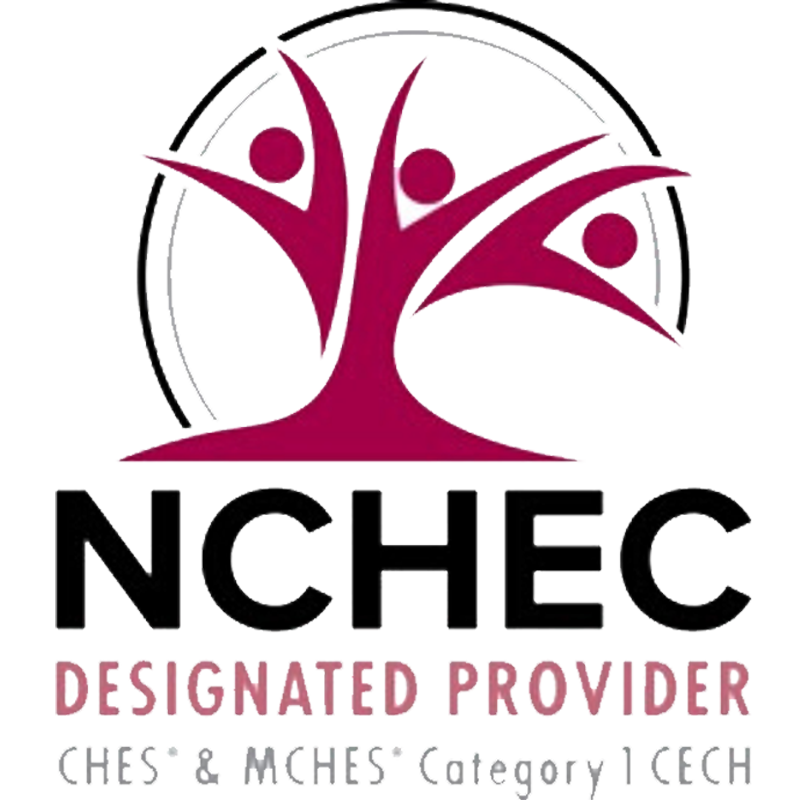

Creative Expression as Preventive Medicine
How might we integrate creative expression into public health initiatives to improve health outcomes and cultivate community resilience?

Course Information
- Audience: All public health professionals working in nonprofits, healthcare, educational institutions, government and private sector
- Format: Webinar
- Date/Time: June, 5, 2025 12:00 PM – 1:00 PM ET.
- Price: Free
- Length: 1 hour
- Credential(s) eligible for contact hours: Sponsored by New England Public Health Training Center (NEPHTC), a designated provider of continuing education contact hours (CECH) in health education by the National Commission for Health Education Credentialing, Inc. This program is designated for Certified Health Education Specialists (CHES) and/or Master Certified Health Education Specialists (MCHES) to receive up to 1 total Category I continuing education contact hours. Maximum advanced-level continuing education contact hours are 1. Provider ID: Event ID: .If you are not seeking a CHES/MCHES contact hours, if you complete the post-test and evaluation, you will receive a Certificate of Completion. The Certificate will include the length of the course.
- Competencies: Public Health Sciences Skills
- Learning Level: Awareness
- Companion Trainings: None
- Supplemental materials:None
- Pre-requisites: PowerPoint and follow up email with any links mentioned during the presentaiton
About this Webinar
Join music therapist Kate Beever to learn about ways health professionals can incorporate expressive arts into their lives and work. Learn specific ways the arts impact brain functioning, reduce burnout, and improve health outcomes. You’ll come away with at least one creative intervention to integrate into your own work.
What you'll learn
- To examine the relationship between music and the brain for a clear understanding of why music is able to help with speech, movement, and expression.
- Specific initiatives in healthcare settings that use the arts to address multiple health goals at once, leaving with at least one prototype for your own setting.
- How to justify the addition of arts interventions by understanding the way arts experiences generalize to other areas of health, improve overall well-being, and reduce the need for care.
- To evaluate the ethical implications involved in therapeutic music/adaptive music work
Subject Matter Expert
-
 Kate Beever
Kate Beever
Kate Beever is an experienced and professional advocate for access to arts and healthcare. Her business, Maine Music & Health, was founded in 2011 and has won awards from the SBA and INC Magazine. She works as a music therapist in pediatric palliative care and adult neuro rehab. Beever created the Creative Health Conference and co-founded Expressive Wellness Trainings; both endeavors build relationships between arts and health professionals. She is a fellow in the National Arts Strategies' Creative Communities. Beever is also a performing percussionist, having toured and recorded internationally.
Enrollment and Contact Hours
Select the Enroll button below to register for the course. If you have any trouble accessing the course, contact support@nephtc.org.
Acknowledgement: This project is supported by the Health Resources and Services Administration (HRSA) of the U.S. Department of Health and Human Services (HHS) as part of award 2 UB6HP31685‐05‐00 “Public Health Training Centers.” The contents are those of the author(s) and do not necessarily represent the official views of, nor an endorsement, by HRSA, HHS or the U.S. Government.
This training was supported by the Health Resources and Services Administration (HRSA) of the U.S. Department of Health and Human Services (HHS) as part of a financial assistance award totaling $400,000 with 100% funded by HRSA/HHS and
0% funded by nongovernment source(s). The contents are those of the author(s) and do not necessarily represent the official views of, nor an endorsement, by HRSA/HHS, or the U.S. Government.
* Yale School of Public Health, Office of Public Health Practice, a New England Public Health Training Center partner, is a designated provider of continuing education contact hours (CECH) in health education by the National Commission for Health Education Credentialing, Inc. All CHES credit inquiries are managed by YSPH
Registration
Select the Enroll Me button below to register for this recording. If you have any trouble accessing the recording, contact support@nephtc.org.
Enroll Me
Acknowledgement: This project is supported by the Health Resources and Services Administration (HRSA) of the U.S. Department of Health and Human Services (HHS) as part of award 2 UB6HP31685‐05‐00 “Public Health Training Centers.” The contents are those of the author(s) and do not necessarily represent the official views of, nor an endorsement, by HRSA, HHS or the U.S. Government.


Active Downtowns: Bicycling/Walking, Economic Vitality & Complete Streets in Maine
How can safer streets and active transportation drive both economic growth and save lives in Maine's Downtown?


Course Information
- Audience: All public health professionals working in nonprofits, healthcare, educational institutions, government and private sector
- Format: Webinar
- Date/Time: May, 1, 2025 12:00 PM – 1:00 PM ET.
- Price: Free
- Length: 1 hour
- Credential(s) eligible for contact hours: Sponsored by New England Public Health Training Center (NEPHTC), a designated provider of continuing education contact hours (CECH) in health education by the National Commission for Health Education Credentialing, Inc. This program is designated for Certified Health Education Specialists (CHES) and/or Master Certified Health Education Specialists (MCHES) to receive up to 1 total Category I continuing education contact hours. Maximum advanced-level continuing education contact hours are 1. Provider ID: Event ID: .If you are not seeking a CHES/MCHES contact hours, if you complete the post-test and evaluation, you will receive a Certificate of Completion. The Certificate will include the length of the course.
- Competencies: Public Health Sciences Skills
- Learning Level: Awareness
- Companion Trainings: None
- Supplemental materials:None
- Pre-requisites: None
About this Webinar
Explore how active transportation—biking and walking—can transform Maine’s downtown areas into vibrant, safe, and economically resilient places. Through the lens of Vision Zero and public health, we’ll highlight how mobility investments reduce injuries, boost local business, and support livable communities.
What you'll learn
- How Complete Streets & Vision Zero applies to Maine’s downtowns and smaller communities.
- The economic benefits of bike- and pedestrian-friendly design.
- Real-world examples of active transportation enhancing local vitality.
- Strategies for cross-sector collaboration between transportation, health, and community partners.
-
Subject Matter Expert
 Andrew Zarro
Andrew Zarro
Andrew Zarro is the Executive Director of the Bicycle Coalition of Maine. With a background in public policy, entrepreneurship, community development and sustainable transportation, Andrew leads statewide efforts to make biking and walking safer, more accessible, and more integrated into the fabric of Maine communities.
Enrollment and Contact Hours
Select the Enroll button below to register for the course. If you have any trouble accessing the course, contact support@nephtc.org.
Acknowledgement: This project is supported by the Health Resources and Services Administration (HRSA) of the U.S. Department of Health and Human Services (HHS) as part of award 2 UB6HP31685‐05‐00 “Public Health Training Centers.” The contents are those of the author(s) and do not necessarily represent the official views of, nor an endorsement, by HRSA, HHS or the U.S. Government.
This training was supported by the Health Resources and Services Administration (HRSA) of the U.S. Department of Health and Human Services (HHS) as part of a financial assistance award totaling $400,000 with 100% funded by HRSA/HHS and
0% funded by nongovernment source(s). The contents are those of the author(s) and do not necessarily represent the official views of, nor an endorsement, by HRSA/HHS, or the U.S. Government.
* Yale School of Public Health, Office of Public Health Practice, a New England Public Health Training Center partner, is a designated provider of continuing education contact hours (CECH) in health education by the National Commission for Health Education Credentialing, Inc. All CHES credit inquiries are managed by YSPH
Registration
Select the Enroll Me button below to register for this recording. If you have any trouble accessing the recording, contact support@nephtc.org.
Enroll Me
Acknowledgement: This project is supported by the Health Resources and Services Administration (HRSA) of the U.S. Department of Health and Human Services (HHS) as part of award 2 UB6HP31685‐05‐00 “Public Health Training Centers.” The contents are those of the author(s) and do not necessarily represent the official views of, nor an endorsement, by HRSA, HHS or the U.S. Government.

Evidence Based Public Health
How do public health practitioners use the best available evidence to select, implement and evaluate programs and policies to improve health?
![]()


Course Information
- Audience: Public health practitioners, Public health community partners, Public health students and Public health faculty in the state of Connecticut.
- Date/Time: January 10 - March 24 (Thursdays 1 PM - 3 PM)
- Location:Online live classroom
- Format: Classroom
- Price: Free
- Length: 20 hours.
- Credential(s) eligible for contact hours: Sponsored by New England Public Health Training Center (NEPHTC), a designated provider of continuing education contact hours (CECH) in health education by the National Commission for Health Education Credentialing, Inc. This program is designated for Certified Health Education Specialists (CHES) and/or Master Certified Health Education Specialists (MCHES) to receive up to 1 total Category I continuing education contact hour. Maximum advanced-level continuing education contact hour is 1. Provider ID: 1131137 Event ID: PM1131137_EVPH. If you are not seeking a CHES/MCHES contact hours, if you complete the post-test and evaluation, you will receive a Certificate of Completion. The Certificate will include the length of the course.
- Competencies: All of the domains below: Analytical/Assessment Skills, Policy Development/Program Planning Skills, Communication Skills, Cultural Competency Skills, Community Dimensions of Practice Skills, Public Health Sciences Skills, Financial Planning and Management Skills and Leadership and Systems Thinking Skills
- Learning Level: Awareness
- Supplemental materials: Course Guide and Technical Requirements (PDF)
- Pre-requisites: None
NOTE:
About this course
The aim of this 10-part course is to build skills in applying evidence-based decision making to improve population health and advance health equity. Through presentations, practice exercises, and case examples, the course takes a “hands-on” approach and emphasizes information that is readily available to busy practitioners.
What you'll learn
After completing this course, you will be able to...
- Describe the basic concepts and the value of evidence-based decision making.
- Identify some sources and types of evidence.
- Recognize the importance of evidence-based decision making to advancing health equity.
- Describe several applications within public health practice that are based on strong evidence and several that are based on weak evidence.
- Define some barriers to evidence-based decision making in public health settings.
Subject Matter Experts
 |
 |
|
|---|---|---|
| Kathleen O’Connor Duffany, PhD | Amy Griffin, MA | |
|
|
 |
|
| Dr. Debbie Humphries | Dr. Tekisha Dwan Everette |
Enrollment and Contact Hours
Note there are two different options for enrolling in this course highlighted in the table below.
The Certificate of Completion will include the length of the module. Generally 50 – 60 minutes is equivalent to 1 contact hour. Contact hours may be applicable towards continuing education requirements for certain credentials. Check with your credentialing body to verify if the topic meets its continuing education requirements.
Having trouble accessing the course? Contact support@nephtc.org
Acknowledgements:
NEPTHC thanks the St. Louis Prevention Research Center for sharing their EBPH curricula for public health workforce development
This project is/was supported by the Health Resources and Services Administration (HRSA) of the U.S. Department of Health and Human Services (HHS) under grant number UB6HP27877 “Regional Public Health Training Center Program”. This information or content and conclusions are those of the author and should not be construed as the official position or policy of, nor should any endorsements be inferred by HRSA, HHS or the U.S. Government.

Evidence Based Public Health
How do public health practitioners use the best available evidence to select, implement and evaluate programs and policies to improve health?
![]()


Course Information
- Audience: Public health practitioners, Public health community partners, Public health students and Public health faculty in the state of Connecticut.
- Date/Time: January 18 - March 21 (Thursdays 1 PM - 3 PM)
- Location:Online live classroom
- Format: Classroom
- Price: Free
- Length: 20 hours.
- Credential(s) eligible for contact hours: Sponsored by New England Public Health Training Center (NEPHTC), a designated provider of continuing education contact hours (CECH) in health education by the National Commission for Health Education Credentialing, Inc. This program is designated for Certified Health Education Specialists (CHES) and/or Master Certified Health Education Specialists (MCHES) to receive up to 1 total Category I continuing education contact hour. Maximum advanced-level continuing education contact hour is 1. Provider ID: 1131137 Event ID: PM1131137_EVPH. If you are not seeking a CHES/MCHES contact hours, if you complete the post-test and evaluation, you will receive a Certificate of Completion. The Certificate will include the length of the course.
- Competencies: All of the domains below: Analytical/Assessment Skills, Policy Development/Program Planning Skills, Communication Skills, Cultural Competency Skills, Community Dimensions of Practice Skills, Public Health Sciences Skills, Financial Planning and Management Skills and Leadership and Systems Thinking Skills
- Learning Level: Awareness
- Supplemental materials: Course Guide and Technical Requirements (PDF)
- Pre-requisites: None
NOTE:
About this course
The aim of this 10-part course is to build skills in applying evidence-based decision making to improve population health and advance health equity. Through presentations, practice exercises, and case examples, the course takes a “hands-on” approach and emphasizes information that is readily available to busy practitioners.
What you'll learn
After completing this course, you will be able to...
- Describe the basic concepts and the value of evidence-based decision making.
- Identify some sources and types of evidence.
- Recognize the importance of evidence-based decision making to advancing health equity.
- Describe several applications within public health practice that are based on strong evidence and several that are based on weak evidence.
- Define some barriers to evidence-based decision making in public health settings.
Enrollment and Contact Hours
Note there are two different options for enrolling in this course highlighted in the table below.
The Certificate of Completion will include the length of the module. Generally 50 – 60 minutes is equivalent to 1 contact hour. Contact hours may be applicable towards continuing education requirements for certain credentials. Check with your credentialing body to verify if the topic meets its continuing education requirements.
Having trouble accessing the course? Contact support@nephtc.org
Acknowledgements:
NEPTHC thanks the St. Louis Prevention Research Center for sharing their EBPH curricula for public health workforce development
This project is/was supported by the Health Resources and Services Administration (HRSA) of the U.S. Department of Health and Human Services (HHS) under grant number UB6HP27877 “Regional Public Health Training Center Program”. This information or content and conclusions are those of the author and should not be construed as the official position or policy of, nor should any endorsements be inferred by HRSA, HHS or the U.S. Government.

Evidence Based Public Health
How do public health practitioners use the best available evidence to select, implement and evaluate programs and policies to improve health?
![]()


Course Information
- Audience: Public health practitioners, Public health community partners, Public health students and Public health faculty in the state of Connecticut.
- Date/Time: January 9 - March 23 (Thursdays 1 PM - 3 PM)
- Location:Online live classroom
- Format: Classroom
- Price: Free
- Length: 20 hours.
- Credential(s) eligible for contact hours: Sponsored by New England Public Health Training Center (NEPHTC), a designated provider of continuing education contact hours (CECH) in health education by the National Commission for Health Education Credentialing, Inc. This program is designated for Certified Health Education Specialists (CHES) and/or Master Certified Health Education Specialists (MCHES) to receive up to 1 total Category I continuing education contact hour. Maximum advanced-level continuing education contact hour is 1. Provider ID: 1131137 Event ID: PM1131137_EVPH. If you are not seeking a CHES/MCHES contact hours, if you complete the post-test and evaluation, you will receive a Certificate of Completion. The Certificate will include the length of the course.
- Competencies: All of the domains below: Analytical/Assessment Skills, Policy Development/Program Planning Skills, Communication Skills, Cultural Competency Skills, Community Dimensions of Practice Skills, Public Health Sciences Skills, Financial Planning and Management Skills and Leadership and Systems Thinking Skills
- Learning Level: Awareness
- Supplemental materials: Course Guide and Technical Requirements (PDF)
- Pre-requisites: None
NOTE:
About this course
The aim of this 10-part course is to build skills in applying evidence-based decision making to improve population health and advance health equity. Through presentations, practice exercises, and case examples, the course takes a “hands-on” approach and emphasizes information that is readily available to busy practitioners.
What you'll learn
After completing this course, you will be able to...
- Describe the basic concepts and the value of evidence-based decision making.
- Identify some sources and types of evidence.
- Recognize the importance of evidence-based decision making to advancing health equity.
- Describe several applications within public health practice that are based on strong evidence and several that are based on weak evidence.
- Define some barriers to evidence-based decision making in public health settings.
Subject Matter Experts
 |
 |
|
|---|---|---|
| Kathleen O’Connor Duffany, PhD | Amy Griffin, MA | |
|
|
||
| Dr. Debbie Humphries |
Enrollment and Contact Hours
Note there are two different options for enrolling in this course highlighted in the table below.
The Certificate of Completion will include the length of the module. Generally 50 – 60 minutes is equivalent to 1 contact hour. Contact hours may be applicable towards continuing education requirements for certain credentials. Check with your credentialing body to verify if the topic meets its continuing education requirements.
Having trouble accessing the course? Contact support@nephtc.org
Acknowledgements:
NEPTHC thanks the St. Louis Prevention Research Center for sharing their EBPH curricula for public health workforce development
This project is/was supported by the Health Resources and Services Administration (HRSA) of the U.S. Department of Health and Human Services (HHS) under grant number UB6HP27877 “Regional Public Health Training Center Program”. This information or content and conclusions are those of the author and should not be construed as the official position or policy of, nor should any endorsements be inferred by HRSA, HHS or the U.S. Government.





